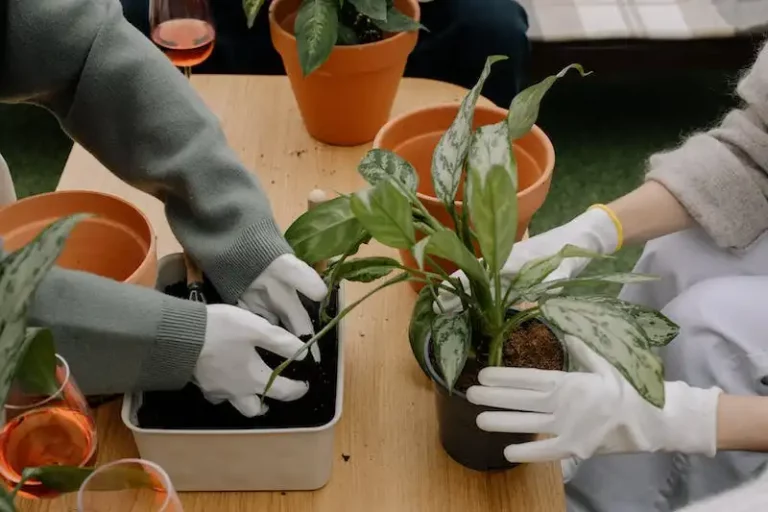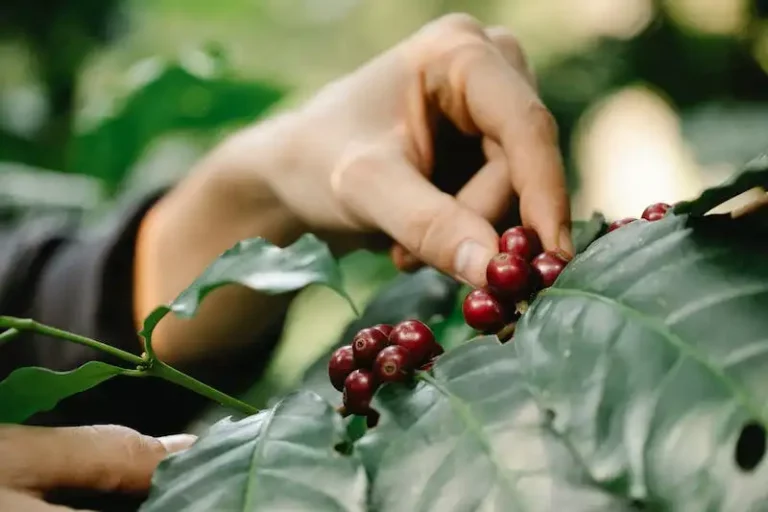Growing poppies can be a rewarding experience for gardeners. They are easy to grow and can add a touch of beauty and color to any garden. Poppies thrive in sunny locations with well-drained soil. They are generally hardy plants that can withstand a wide range of temperatures, making them suitable for many areas. If you are looking to grow poppies, there are a few things you should keep in mind.
Firstly, poppies require enough space to grow. They have a tendency to spread, so make sure to give them enough room to fully develop. Additionally, deadheading the flowers can help promote the growth of new blooms, so don’t forget to remove the faded ones.
There are different types of poppies to choose from, such as the icelandic poppy, which is known for its delicate form and beautiful flowers. When choosing a site for planting, it is important to consider the soil and sun conditions. Poppies prefer well-drained soil and full sun, so make sure to choose a location that meets these requirements.
When it comes to planting poppy seeds, sprinkle them directly into the soil and lightly cover them with a thin layer. Water the seedlings regularly, but not excessively to avoid fungal growth. Poppies are generally low maintenance plants, but they do require some care during the growing season. Remove any weeds that may compete with the poppies for nutrients and water, and be sure to water them during dry spells.
Overwintering poppies can be a challenge in areas with harsh winters. However, with proper care, they can survive and bloom again in the following year. In colder regions, it is recommended to plant poppies in the spring or early summer to ensure they have enough time to establish themselves before winter.
There are many ways to propagate poppies, such as dividing mature plants or growing them from seed. Harvesting poppy seeds can be done by cutting the seedheads once they turn brown and dry. It is important to store the seeds in a cool and dry place, away from direct sunlight, until you are ready to sow them in the next growing season.
In conclusion, growing poppies can be a rewarding experience for any gardener. With their beautiful flowers and low maintenance requirements, they are a great addition to any garden. Whether you choose to grow them from seeds or buy seedlings, poppies are sure to bring color and joy to your outdoor space. So why not give them a try and see how they can transform your garden?
Poppy Seeds
Poppy seeds can help improve digestion and provide essential nutrients such as calcium, iron, and zinc. They are also known for being a good source of dietary fiber, which can help regulate blood sugar levels and promote a healthy digestive system.
When it comes to choosing poppy seeds, there are several varieties to consider. The Papaver nudicaule, also known as the Icelandic poppy, is one popular choice. This variety can thrive in cooler temperatures and has vibrant orange, white, or yellow flowers. Another popular variety is the Papaver orientale, which is known for its large, showy flowers in shades of red, pink, or orange.
Growing poppy seeds can be done in various ways. Some gardeners prefer to sow the seeds directly in the ground, while others choose to start with seedlings. It’s important to provide the right conditions for the seeds to thrive, such as well-drained soil and a sunny spot. In colder regions, it’s best to plant the seeds in early spring or fall to ensure a successful harvest.
Caring for poppy seeds involves regular watering and keeping an eye out for any signs of pests or diseases. Poppy plants have delicate foliage, so it’s important to handle them with care. It’s also advised to remove any spent flowers or seed pods to encourage better flowering and prolong the plant’s life.
If you’re interested in growing poppy seeds, there are many online resources available that can provide advice and tips on how to get started. You can also find a wide variety of poppy seeds for purchase online, including the popular Icelandic variety and other types such as ‘Turkenlouis’ and ‘Ladybird’.
Whether you’re a seasoned gardener or new to growing poppies, these beautiful flowers can add a touch of elegance to any garden or landscape. So why not give poppy seeds a try and enjoy their beauty and benefits?
Where to Plant Poppy Seeds
When it comes to growing poppies, one of the most important factors to consider is where to plant the seeds. The success of your poppy plants will greatly depend on their growing conditions. Here are some tips on where to plant poppy seeds for optimal growth and blooming:
Light and Temperature: Poppies, especially the orientale types, thrive in full sun or light shade. They require at least six hours of direct sunlight each day. Poppies can tolerate a wide range of temperatures, but keep in mind that high heat can cause the flowers to wilt quickly.
Soil: Poppies prefer well-drained soil that is rich in organic matter. Before planting, amend the soil with compost or well-rotted manure to ensure a fertile growing environment for your poppy plants.
Watering: Once established, poppies are relatively drought-tolerant and don’t require frequent watering. However, during seed germination and the flowering stage, it’s essential to keep the soil evenly moist. Avoid over-watering, as excessive moisture can lead to root rot.
Spacing: To give your poppy plants enough room to grow and flourish, space them about 12 to 18 inches apart. This will allow for proper air circulation and prevent overcrowding.
Planting: Whether you are buying poppy plants or sowing seeds, it’s better to do so in early spring. You can start seeds indoors six to eight weeks before the last frost, or directly sow them in the garden after the danger of frost has passed. Poppy seeds are very small, so sprinkle them lightly on the soil surface and gently press them down.
Perennials vs Annuals: There are two main types of poppies: perennials and annuals. Perennial poppies, such as the orientale variety, come back year after year, while annual poppies, like the popular ‘Shirley’ and ‘Perry’s White’, complete their entire life cycle in one season. Consider your preferences and maintenance abilities when choosing which type of poppy to grow.
Problem-Solving: If you have areas in your garden with poor soil or difficult growing conditions, poppies can be a great choice. These hardy plants can tolerate less-than-ideal conditions and even help improve the soil over time.
Attracting Pollinators: Poppies are not only beautiful but also beneficial for pollinators like bees and butterflies. By planting poppy seeds, you can provide a valuable food source for these important creatures and contribute to a thriving ecosystem.
Propagation: If you want to grow even more poppies, propagating them from existing plants is an easy and cost-effective method. Wait until the pods have completely dried on the plant, then collect the seeds and store them in a cool, dry place for winter sowing or sharing with fellow gardeners.
Growing poppies is not difficult if you choose the right spot and provide them with the care they need. Soon, your garden will be adorned with their stunning blooms, and you’ll be able to enjoy the beauty of these lovely flowers year after year.
How to Plant Poppy Seeds
Planting poppy seeds can be a rewarding and beautiful addition to your garden. There are many varieties of poppies to choose from, including Papaver nudicaule and Papaver orientale, which belong to the Papaveraceae family. Here are some tips to help you successfully grow poppies in your garden:
1. Choose the right site: Poppies prefer a sunny location with well-drained soil. Make sure the planting area has good air circulation and is not prone to waterlogging.
2. Prepare the soil: Before planting, loosen the soil and remove any weeds or debris. Poppies prefer a neutral pH soil, so if your soil is acidic, you may need to add some lime.
3. Sow the seeds: You can sow poppy seeds directly into the ground in early spring or fall. If you live in colder areas, it’s best to sow the seeds in the fall for overwintering. Sow the seeds thinly and cover them with a thin layer of soil.
4. Watering: Keep the soil moist but not waterlogged. Poppies do not like excessive moisture, so water them sparingly. Once the plants have established, they require little maintenance.
5. Provide support: Depending on the variety you’re growing, some poppies may require support. Use stakes or cages to help the plants grow upright and prevent them from flopping over.
6. Deadhead the flowers: To encourage more blooms, deadhead the flowers as soon as they start to fade. This will also help prevent the plants from self-seeding too much and becoming invasive.
7. Harvesting: Harvest the poppy pods when they turn brown and start to dry out. This is usually in late summer or early fall. Cut the pods from the plant and allow them to dry further indoors.
8. Propagating: Poppy plants can be propagated through division or by collecting and sowing the seeds. If you want to grow more poppy plants, divide them in early spring when they are dormant.
Poppies are popular for their stunning flowers and can be a great addition to any garden. They are also known for attracting pollinators, which can help support the ecosystem in your garden. Whether you choose Oriental poppies or the bright red Papaver nudicaule ‘Turkenlouis’, growing poppies can fill your garden with color and beauty.
If you need more guidance on how to plant poppy seeds, there are many helpful resources available online, including videos and step-by-step instructions. So get out there and start planting your own field of poppies!
Remember to check the planting zone and specific growing requirements for the variety of poppies you are planting. Different types of poppies may have slightly different needs.
Important note: It is worth mentioning that certain areas have restrictions on growing poppies due to legal regulations, so it is important to be aware of any laws or regulations in your area before planting.
How to Care for Poppies
Growing poppies can be a great addition to your garden. These delicate flowers are often associated with their bright colors, striking visuals, and enchanting fragrance. To ensure their beautiful display, it is important to take good care of them. Here are some tips and advice to help you care for your poppies:
Site and Soil: Poppies prefer a sunny location in well-drained soil. Choose a site where they will receive at least 6 hours of direct sunlight every day. Make sure the soil is loose and not too compacted. Before planting, you can add organic matter such as compost to improve the soil quality.
Watering: Poppies do not like excessive moisture, so it’s important to water them in moderation. It is best to water in the morning so that the plant leaves have time to dry before nightfall. This helps prevent fungal diseases and keeps your poppies healthy.
Deadheading: Deadheading is the process of removing faded or spent flowers from the plant. By doing this, you encourage more blooms to develop and prolong the flowering season. When the flower petals have fallen off, cut the stem just above a leaf node or the base of the plant.
Propagation: If you would like to propagate your poppies, collecting seeds is a great way to do it. Allow the poppy pods to dry on the plant until they turn brown. Harvest the pods and collect the seeds. You can then sow these seeds in the desired location or store them for future use.
Overwintering: Some poppy varieties are annuals, while others are perennials. Annual poppies like Papaver rhoeas do not typically survive the winter, but their seeds can be scattered in the fall for next year’s growth. Perennial poppies like Papaver commutatum can be cut back to the ground in winter and will come back in spring.
Buying Plants: If you prefer to buy poppy plants instead of growing them from seeds, you have a few options. Many nurseries offer poppy plants for sale, and they can also be purchased online. Be sure to choose a reputable source and check the plant’s specific care requirements.
Attracting Pollinators: Poppies are bee-friendly plants that attract pollinators to your garden. Their bright colors and nectar make them irresistible to bees, butterflies, and other beneficial insects. By including poppies in your garden, you are helping to support local pollinators.
Fungal Problems: Poppies are generally resistant to pests and diseases, but they can occasionally face fungal issues. If you notice powdery mildew or other fungal growth on your poppies, make sure to water at the base of the plant and avoid wetting the leaves. You can also apply a fungicide if needed.
In conclusion, caring for poppies involves providing them with a suitable site, proper watering, deadheading, propagating when desired, overwintering if applicable, and being mindful of pollinators and fungal problems. By following these tips and advice, you can ensure that your poppies thrive and bring beauty to your garden or floral arrangements.




